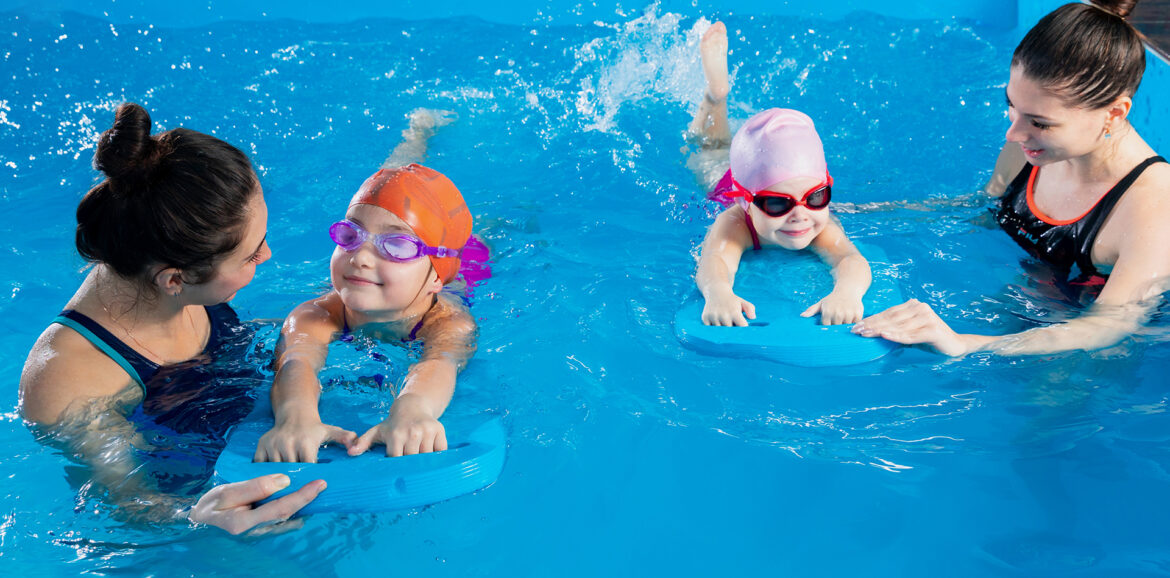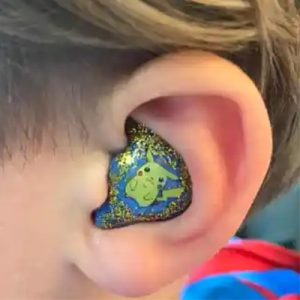Anyone who regularly lies in the pool or enjoys a refreshing dip in open water has probably heard of swim caps. But what exactly are they, how do they work and who actually benefits from them? Swim caps are often seen as a small accessory, but in reality they can make a big difference to your comfort as well as your health. In this blog, I explain all about swim caps: what they are, how they work and what you can use them for.
What are swim caps?
Swimming plugs are special earplugs that you wear while swimming, showering or other water activities. Their main function is simple: they keep water out of your ears. In doing so, they protect your ear canal from irritation, inflammation or other discomfort.
Swim caps come in different shapes and sizes:
- Universal swim caps: ready-made, in standard sizes and often made of silicone or soft plastic. They seal reasonably well and are ideal for occasional swimmers.
- Custom-made swimming plugs: specially fitted by a hearing care professional. These fit your ear perfectly, are comfortable and offer optimal protection. Ideal for those who swim often or have sensitive ears.
What do you use swim caps for?
You may be thinking, “Why should I wear swim caps at all? Water in my ear blows away on its own, right?” Yet there are several situations in which swim caps really come in handy.
1. Protection against swimmer’s ear
One of the best-known reasons to wear swim caps is to prevent swimmer’s ear (otitis externa). This is a painful inflammation of the ear canal, often caused by stagnant water that attracts bacteria and fungi. Swimmer’s ear is common in avid swimmers, children and people prone to ear infections.
2. Prevention of surfer’s ear
Not only chlorinated or fresh water can cause problems; cold sea water and wind are also culprits. In surfers and sailors, prolonged exposure can lead to surfer’s ear, where bone growths form in the ear canal. Swimming plugs protect your ears from cold and wind, greatly reducing the chances of this happening.
3. After ear surgery
Doctors often recommend using swim plugs after ear surgery, such as tubes or eardrum repair. The ear must then be kept dry to heal properly and prevent infection. Swim plugs prevent water from entering.
4. For children with tubes
Children who have received tubes are especially vulnerable to water in the ears. Swim plugs (sometimes combined with a swim band or headband) provide protection so they can continue to play and swim carefree.
5. Comfort and tranquility
Some people simply like not getting water in their ears. It can create a sloshing or full feeling, or cause you to hear less well after swimming. With swimming earplugs, you can prevent that and enjoy your time in the water more comfortably.
Which swim caps are best?
It depends on how often and what you use them for.
- For occasional swimmers: universal swim caps are often sufficient. They are affordable and easy to carry.
- For avid swimmers or sensitive ears: custom-made is the best option. They seal perfectly, last for years and offer the highest level of comfort.
- For kids: custom swim caps are ideal, often in bright colors so they don’t get lost easily.
Tips on using swim caps
- Keep them clean: rinse them after use and let them dry. This will prevent bacteria and mold growth.
- Keep them in a case: that way they stay hygienic and you won’t lose them.
- Get them properly fitted: especially with custom made ones, it is important that they fit your ear exactly.
- Combine with a swim band: especially for children, this gives extra assurance that the caps will stay in place.
Frequently asked questions about swim caps
Can you still hear with swim caps in?
Yes, but the sound is somewhat muffled. However, you can still hear the swim teacher just fine!
Are swim caps also suitable for diving?
Not always. Swimming plugs close off your ear canal, so pressure differences under water are not well absorbed. For diving, there are diving plugs with a special pressure-regulating filter.
How long do swim caps last?
Universal caps often last a few months to a year, depending on use. Custom caps can last several years, provided you maintain them properly.
Conclusion
Swimming earplugs may seem like a small aid, but they can prevent big problems. Whether you suffer from sensitive ears, have children with tubes, or simply don’t like water that sticks: swim earplugs provide comfort and protection.
For those who take an occasional dip, universal plugs are often sufficient, but for those who swim regularly or are prone to ear problems, custom swim plugs are the best investment. This way, you keep your ears healthy and can continue to enjoy water fun carefree.









